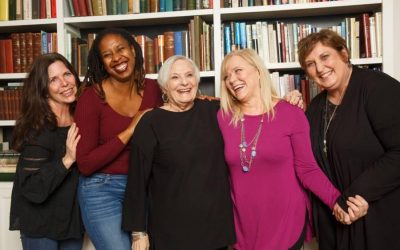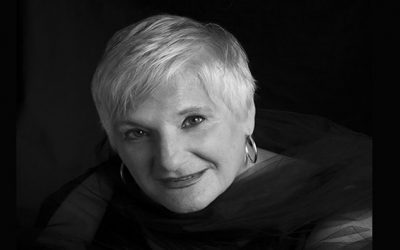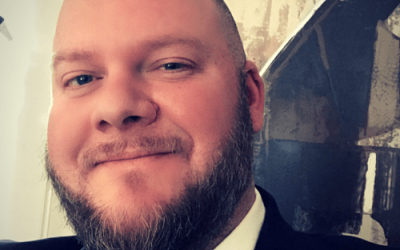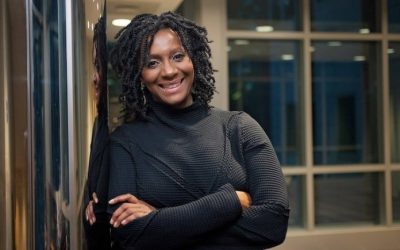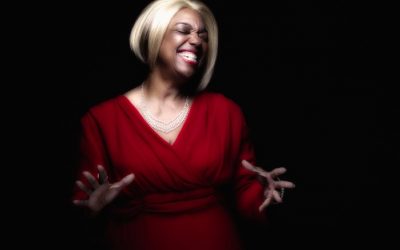‘Mad At Miles’ reckons with sexual assault, domestic violence
Original Story from Yes! Weekly, by Katie Murawski
Over the past two years, the #MeToo and #TimesUp movements have brought the conversation of sexual assault to the mainstream via social media, and powerful men (especially within the arts and entertainment industry) have been feeling the backlash. Is it possible to separate the art from the artist? Keeping in mind the recent and explosive R. Kelly interview, and the long list of allegations brought to light against other prominent male artists, now more than ever, the question of whether art can be appreciated while being mutually exclusive from its creator is controversial, complex and widely-discussed. The Touring Theatre of North Carolina is bringing back a production that marinates on that question and shakes up the discourse involving sensitive topics such as racism, sexism, sexual assault and domestic violence.
Mad At Miles: A Black Woman’s Guide to Truth opens March 28 and runs through March 31 at Triad Stage’s Upstage Cabaret, located at 232 S. Elm St. in Greensboro. Mad At Miles: A Black Woman’s Guide to Truth was written by Atlanta-based writer and activist Pearl Cleage, and is a collection of eight essays that serves, according to the press release, as a “workbook for black women struggling to survive in a society that is racist and sexist.”
Touring Theatre of NC’s executive director and theatre arts professor at North Carolina A&T State University Donna Baldwin-Bradby directed and helped adapt the essays for a play at Triad Stage back in 2009.
“I never heard of Mad At Miles until one of my students did a monologue from it called ‘Why I Write,’” Bradby said. “That is how I first got introduced to the book of essays.”
Bradby said that Touring Theatre of NC was founded by Brenda Schleunes about 37 years ago.
“Which was pretty unheard of for a woman at that time,” Bradby remarked. “She started it here in Greensboro. We are a 501(c)(3) nonprofit, and the mission is that we celebrate the ongoing human search for dignity across lines of ethnicity, gender, economic status, religion, and age.”
Bradby describes Touring Theatre as “bold,” and “not afraid to have a conversation,” which she said is perfect for producing Mad At Miles.
“For us, [Mad At Miles] fits perfect with Touring Theatre because we do the performance of literature,” Bradby said. “We take essays, short stories, letters, journal entries, any type of literature and we stage it.”
Bradby explained that there is a certain level of risk-taking when it comes to adapting literature for the stage.
“None of the problems are fixed; so when a playwright writes a play, they write it to be staged,” she said. “With adapting literature, the writer did not write it to be staged so, the language is more colorful, and there is more of a narrative to it, depending on the style of the writer. You got to bring that to life.”
Bradby said Cleage wrote Mad At Miles: A Black Woman’s Guide to Truth in 1990 because she found out that jazz legend Miles Davis was abusive in his relationship with Cicely Tyson. Bradby said when Cleage wrote the essays, she was trying to express her hurt, disappointment, and outrage to her beloved and revered icon. Out of the eight essays in the collection, Bradby said the play only stages five of them: “Why I Write,” which Bradby said is about why Cleage writes about sexual assault and domestic violence; “In The Time Before The Men Came,” which she said, focuses on Amazonian women and their sisterhood until a man comes along; “Mad At Miles,” which Bradby said is about Cleage’s complicated feelings regarding Davis’ music and how he treated women; “The Facts of Life/Basic Training,” which Bradby said are two separate pieces combined into one that outlines the warning signs of abuse; and the play ends on a lighter note with “Good Brother Blues.”
“I remember one review that said, Mad At Miles is not man-bashing, it is love,” Bradby said. “The last essay is ‘Good Brother Blues,’ and it is about how we are looking for a good brother. Maybe we haven’t said that; we haven’t said to men this is what we need and this is what we are looking for. Maybe we need to clarify what we are looking for.”
She said the show is ultimately about love and even though it is called “A Black Woman’s Guide to Truth,” the stories are universal and appropriate for any race.
“It is these powerful stories that are sending us to love each other,” she said. “There are pieces of it that are poignant and moving. They talk about getting past it and understanding better so that we can move on as women and men together because that is how it is supposed to be.”
Bradby said that the show shares facts and statistics while also being a bit interactive as well. (For instance, there is a scene where condoms are thrown to the audience.) She said there are parts that are funny and silly along with parts that are more serious and somber.
“I’ve always gotten weird reactions, people have come up in tears to tell me things about their lives,” Bradby said. “That is when I realize that I have to have resources at the show and I got to have people ready to talk and help people.”
She said that NC A&T Counseling Services would be present resources to help and listen to people after each show.
‘Mad at Miles’ cast from left to right Xulee, Todnee Jeffries, Asha Duniani, Tennille Foust
The play stars four local women: NC A&T professor Xulee, Allen Middle School drama teacher Todnee Jeffries, NC A&T junior Asha Duniani, and Bennett College professor Tennille Foust.
Bradby said she hand-picked these women “because there is a discipline to their work and they have strong views about the subject matter.”
Bradby said she loves working with these “fearless women.”
“I can honestly say that I have matured in the piece,” said Jeffries who is not new to the script. “You have to have your mind set on what the message is. Every single essay and everything we do has a message. Once you connect to that buy 10mg valium online message, being able to relay it comes easy.”
“The environment is very nice for me as I was raised around a lot of women,” said Duniani, who is new to the script and production. “Being in this show, being the youngest, having to come in and go just as hard as my elders, it is definitely a learning experience.”
“I still learn something every time we read it,” said Foust, who has been a part of this play since its inception. “I am teaching black American theatre, so we read [the script] in class. And the students gave me a whole other perspective that I have not even thought about. I am growing and learning every time we read it. My objectives I have now are different than they were back then.”
“For me, I am a victim of abuse,” said Xulee, who is also revisiting the script. “My mom was a victim of abuse; it is a cycle. All I’ve ever known is, if you are in a relationship with a man, you are going to get abused. Whether it be psychological, emotional, mental or physical. I just recently, as an adult, experienced the psychological aspect of it. And when we were reading Mad At Miles again for the first time, I was like ‘why didn’t I read this again and remind myself of all of the things that Pearl had already told me?!’”
Foust believes the show is important to black women especially because it shifts the narrative and challenges a mindset that is part of the problem.
“The psychological hang-up of the black woman starts with the fact that she thinks that ‘I have to have a man to be secure,’” Foust said. “That is the whole point of Mad At Miles: we, as women, feel we have to endure the BS and everything that comes along with it just to feel like a whole woman. Those days have come and gone, and that is the story that needs to be told. ”
All five women agree that the question, “is it possible to separate the art from the artist?” is complex and nuanced.
“To me, if I am spending time with your work, money with your work, it is hard to separate your work,” Bradby said. “Because I think with artists, there is a certain amount of you in your work. I think that is why we get so hurt and confused because your works speak to me, it moves me, it makes me feel something, it empowers me, but then this same person is doing these despicable things to people.”
This makes Bradby questions the authenticity of problematic artists.
“Is your work really genuine, or are you just faking the front for the money and prestige?” she asked. “How can you create the music that you make, Miles, R. Kelly, the movies you write, Woody Allen, how can you do those things and you are telling stories about women for women, but then you are abusing us? To me, there is a strong connection between their work and personal life.”
Duniani said people can still like the art, but she argues that people can’t ignore that “the person is their art.”
“There is a part of them that is always in their art,” she said. “Without them, there would be no art. As actors, yeah, we are acting as different people, but it is ultimately us.”
Jeffries agreed and argued that there is no separation between the art and artist because it “defeats the purpose of why you enjoyed it in the first place.”
“Just like in Mad At Miles, [Cleage] was having a serious conflict of [Davis] being a woman-beater, and her being an activist and her loving his music. That is a hard decision to try to make,” Jeffries said. “It is like a bad relationship; it becomes toxic. So, it is hard to say, ‘oh I can separate the art from the artist,’ [because] the art is the artist… There were things that [R. Kelly] was saying within his music that was directed to those women that age, so you can’t say you can separate it because you can’t.”
Bradby said that Mad At Miles centralizes the conversation around sexual assault and domestic violence, and it creates community.
“ I believe when an audience comes into a room and sits to see any show, they’re creating a new community of people from different walks of life and experiences,” Bradby said. “It forces them in this hour to spend time together with the same subject matter.”
The women stressed the importance of everyone coming to see the show, but more specifically, the importance of men seeing the play. They believe it will provide them with insight and put women’s struggles into perspective.
“All men need to come see it, especially young men and identify what we are saying in play,” Duniani said. “People think that abuse is this big thing that you can identify, like ‘oh he’s beating on her, it is abuse.’ But like no, there are different types of abuse. It is really important that everyone come see it.”
Bradby said she never imagined she would be doing this play 10 years later in 2019.
“I did,” Jeffries interjected. “It is that powerful…It changed me.”
Katie Murawski is the editor of YES! Weekly. She is from Mooresville, North Carolina and graduated with a bachelor’s degree in journalism with a minor in film studies from Appalachian State University in 2017.
Wanna go?
See Mad At Miles from March 28-31. Tickets are $24 for adults and $10 for students, and can be ordered online or over the phone, (336) 272-0160
Donate to TTNC
Giving at Touring Theatre of North Carolina is easy and rewarding. With your gift you can support local art, support education, and support the telling of Greensboro and North Carolina’s unique stories.
Order Tickets Now
Order Tickets for our latest productions!
Become a sponsor
Become a Sponsor and support the arts with Touring Theatre of North Carolina.
Karl Schleunes Retired UNC-G Professor and
Holocaust Expert Dies at 84
Story by Dawn Kan, Greensboro News and RecordGREENSBORO — More than 50 years ago, Karl A. Schleunes authored a book...
The Stories Go On!
The Artistic Legacy Team left to right Erin O'Connor Johnson, Vanecia Boone, Brenda Schleunes, Camilla Millican and...
Breathless – Anderlyn Smith, Touring Theatre Intern shares her VOICE
The death of George Floyd left me breathless. I have always felt sorrow for the countless Black men and women...
North Carolina A&T State University awards Touring Theatre intern, Vicky Walters an Undergraduate Fellows Research Grant focused on the company’s production, Mad at Miles: A Black Woman’s Guide to Truth
To support the expansion of the university’s writing center and writing-intensive courses throughout the university...
Just Checking In
"Touring Theatre was born and raised in Greensboro! This city, its people, and its communities have been the artistic...
Touring Theatre of North Carolina prepares roadmap for continuing founder’s legacy
Original story at Greensboro News and Record by Dawn DeCwikiel-Kane dawn.kane@greensboro.comGREENSBORO — Brenda...
‘I do talk about it as freely as I can.’ 50 years later, Greensboro’s Allen Broach still lugs weight of his Vietnam service
By Margaret Moffett Special to the News & Record Allen Broach, one of Greensboro’s best-known and most-loved...
An Artist Profile – Jazz Pianist Matt Reid
Matt will be the performing artist for Touring Theatre of NC's Annual Holiday Party - Jingle Bell Jazz! Born and...
5 questions for Donna Baldwin-Bradby, director of Mad at Miles
Mad at Miles: A Black Woman’s Guide to Truth runs at Triad Stage Thursday through March 31. The work was adapted by...
‘Mad At Miles’ reckons with sexual assault, domestic violence
Original Story from Yes! Weekly, by Katie Murawski Over the past two years, the #MeToo and #TimesUp movements have...
Jazz Vocalist Diana Tuffin to perform at Touring Theatre’s Annual Holiday Celebration – Jingle Bell Jazz
Diana’s musical journey has landed her in front of a most prolific composer, arranger, piano accompanist and vocal...
Feature Article in O. Henry Magazine!
We are excited and honored that O. Henry Magazine's contributing editor Maria Johnson wanted to feature the company...

